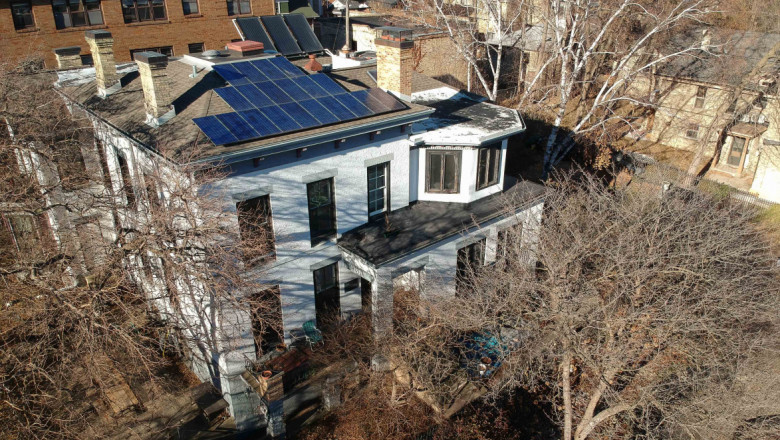
Rooftop solar panels provide some of Hypatia Cooperative's electricity. (Seeger Gray)

Rooftop solar panels provide some of Hypatia Cooperative's electricity. (Seeger Gray)
This story was originally published in The Cap Times on Dec. 20th, 2022. Some wording has been edited for non-local audiences.
Madison, Wisconsin’s housing cooperatives appeal to residents for their sense of community and affordable rent. But they also serve as an example of how housing can become more sustainable, according to DaMontae January, membership coordinator of Madison Community Cooperative.
MCC operates 11 cooperatives that currently house a total of 142 members, according to January. The group provides logistical assistance and a financial safety net for expenses such as maintenance and renovation. Members vote on policies for their individual buildings and participate in MCC-wide decisions. Depending on which MCC house a member lives in, rent and utilities combined cost between $360 and $710 per month.
In a housing co-op, members live in separate rooms in the same building, sharing utilities and common spaces such as kitchens. According to Claire Oleksiak, the executive director of Madison environmental nonprofit Sustain Dane, more dense housing like apartments and cooperatives are generally more energy-efficient than single-family homes, producing fewer greenhouse gas emissions per person.
Recent gas and electricity use data wasn’t available for three of MCC’s buildings. Out of the eight others, Madison Gas & Electric data show that all use less natural gas and most use less electricity per person than the Madison average for all forms of housing.
Zoe Bayliss Cooperative, Madison’s largest co-op with 47 student members, will move into an MCC building on Langdon Street this summer.
The University of Wisconsin-Madison will demolish the building Zoe Bayliss has rented from the university for decades after this academic year. After frustrating uncertainty about the future of the co-op, Angela Maloney, a UW-Madison senior and Zoe Bayliss board member, said the move into MCC’s building “feels more like we are joining a partnership.”
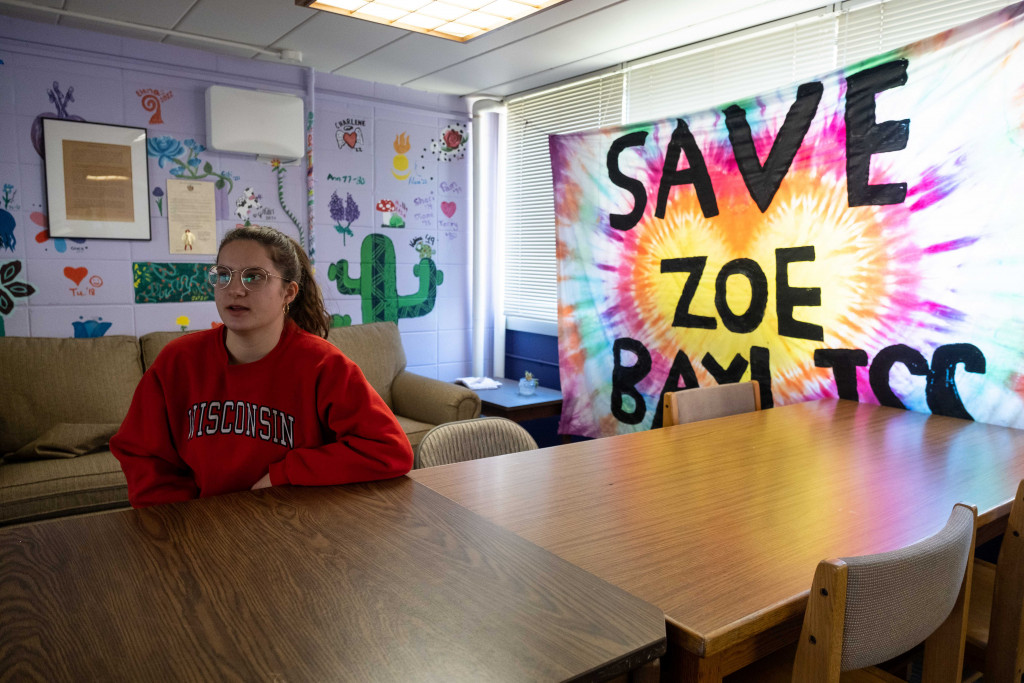
Zoe Bayliss’ new location on Langdon Street has the potential to become uniquely efficient even among MCC co-ops, according to January. MCC will replace the building’s damaged steam boiler system with a new, all-electric heating and cooling system, reducing its reliance on fossil fuels.
Heat and air conditioning are some of the largest contributors to household natural gas and electricity usage, according to Valora Gutierrez, Sustain Dane’s Efficiency Navigator and Naturally Occurring Affordable Housing outreach specialist.
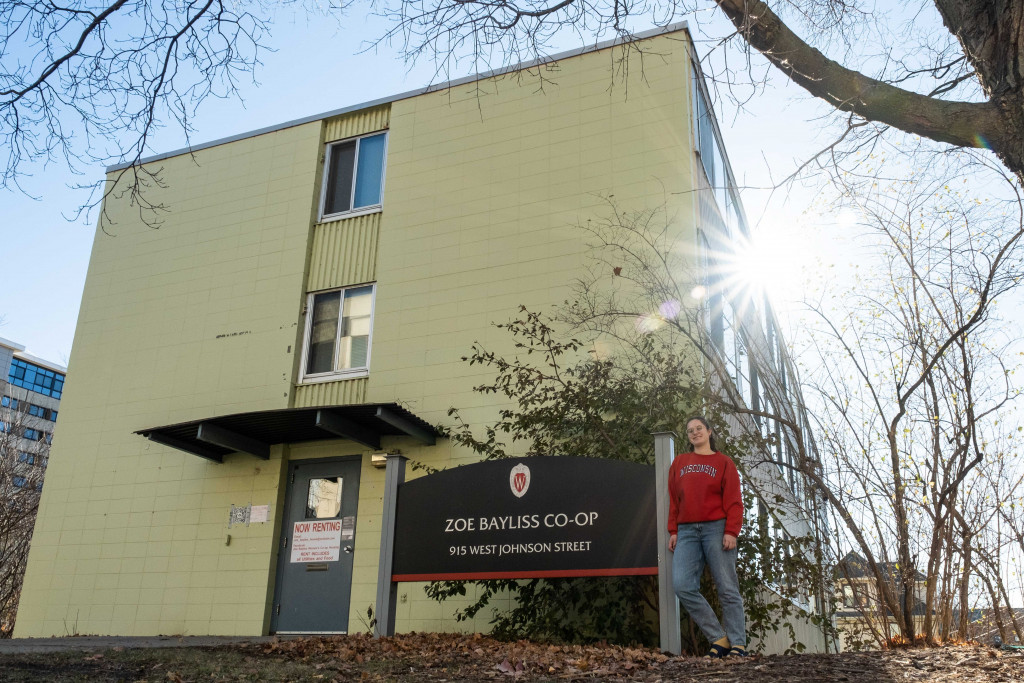
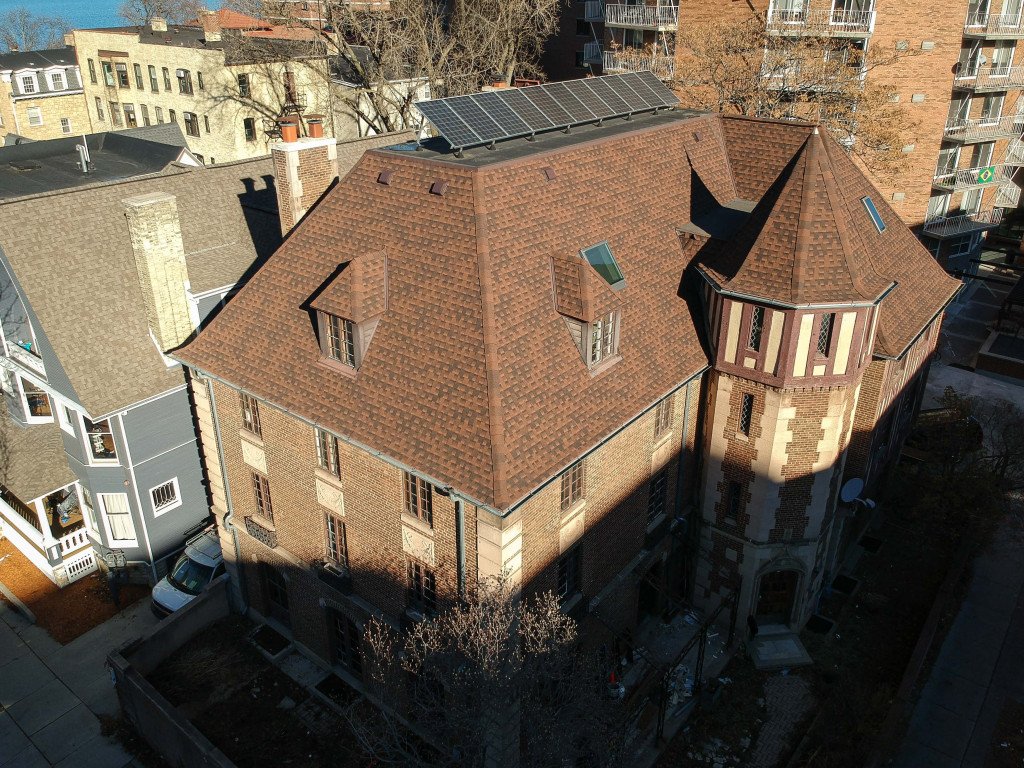
Improvements like those planned for Zoe Bayliss can be costly – January said the more efficient heating and cooling system and the electrical upgrades necessary to support it will cost $750,000.
For the project, MCC received financial and logistical assistance from Sustain Dane and Elevate, a Chicago-based nonprofit that aims to make utilities cleaner and more affordable. The organizations helped MCC secure a grant to cover $288,000 of the new system’s installation.
Sustain Dane and Elevate assist with similar — though typically smaller — projects through their Efficiency Navigator program, which aims to make energy and resource-efficient upgrades to affordable multifamily rental housing more accessible.
“We, throughout the process, hold their hand and coordinate the contractors for them, coordinate the contractor bids and set up all the necessary logistics,” Gutierrez said.
Gutierrez said the program also helps affordable housing stay affordable by directly funding upgrades to old buildings, helping owners keep rents low. Upgrades such as more efficient insulation and window sealing can also reduce gas and electric bills for renters.
January expects the replacement and other renovations to be complete by the end of May, allowing members of Zoe Bayliss to move in for the next academic year.
January said MCC also encourages member houses to improve insulation, particularly in the winter. “Those smaller things, that can have a big impact,” January said.
While older buildings often require renovations to increase efficiency and drive down energy costs, Sustain Dane’s Oleksiak said renovations have a smaller environmental footprint than constructing homes from scratch.
“Think of all the materials that go into building a house. The concrete to pour the foundation, the wood and drywall,” Oleksiak said. “Reusing an existing building can be a benefit to the environment.”
Housing co-ops typically occupy large, old houses downtown. Many, including Zoe Bayliss’ future building, inhabit former fraternity or sorority houses.
January said older houses are often either rented out to students as-is or occasionally demolished to make way for new construction. But he said converting them into co-ops can accommodate more people and still “keep the whole house out of the landfill.”
Converting old buildings in the city into more densely populated cooperatives also allows co-op members to take shorter commutes to downtown jobs. According to a city presentation on building sustainability, residential buildings create 17% of Madison’s greenhouse gas emissions, while transportation creates 41%.
Steve Vig, a member of MCC’s Hypatia Cooperative, said being part of a community also reduces members’ transportation needs and waste compared to living in separate apartments or houses.
“I make one shopping trip a week and do the food shopping for 14 people,” Vig said, adding that other members are responsible for recycling and composting. “If we weren’t all living together and organizing it together, probably not all of us would do that wherever we were living.”
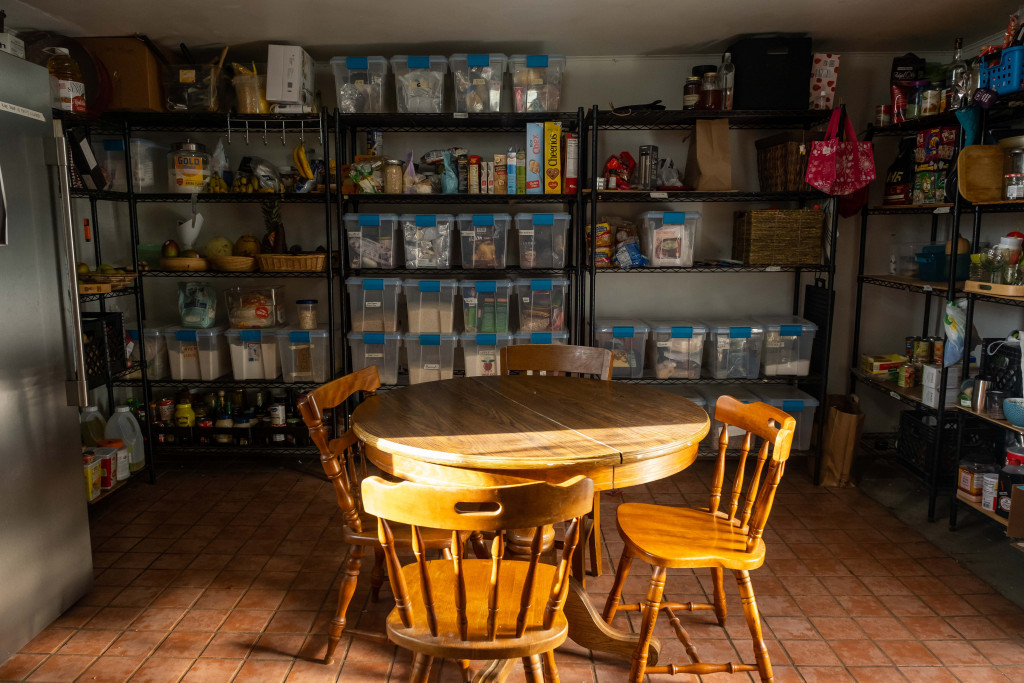
ReJenerate Housing Cooperative aims to further reduce its emissions from transportation by installing charging stations for three shared electric vehicles, according to the co-op’s website. Members may opt-in to use those vehicles instead of owning their own car.
ReJenerate should house 25 units in two adjacent houses on Jenifer Street once ongoing renovations are complete in the spring, according to Abby Davidson, one of ReJenerate’s developers and a former member of an MCC co-op house.
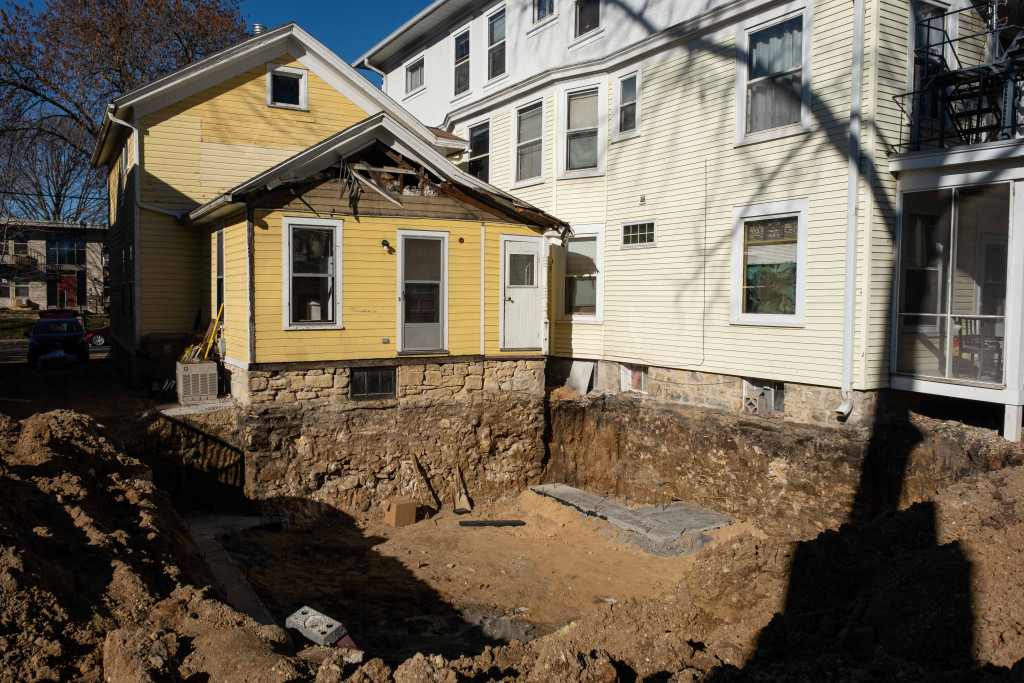
While making housing less harmful to the environment may be a burden on homeowners and out of the control of many renters, January said Madison’s housing cooperatives show sustainability doesn’t have to be a solo project.
“As we look at how our changing climate is going to start affecting how people live, where they live, I think co-ops can be at the forefront,” January said.